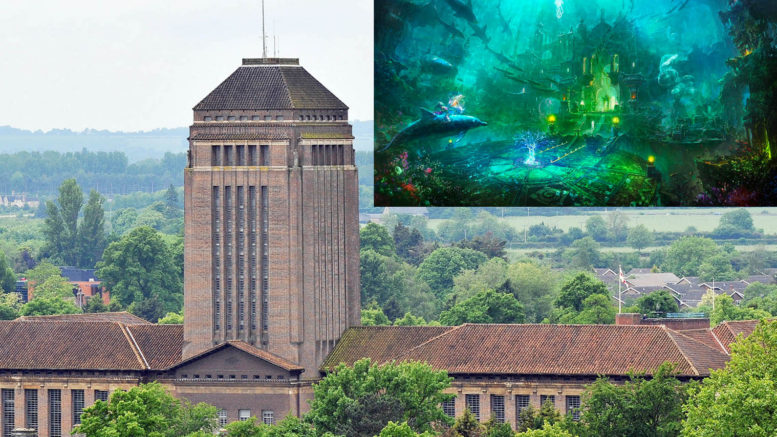Plato’s famous island city had evaded discovery for over 2,500 years by hiding in the West Wing of the UL, one of the last truly unexplored areas on Earth’s surface.
The island’s isolation was disturbed by a student who decided to brave the West Wing in order to retrieve a book from the unmapped expanse. Whilst they were not able to locate the obscure 19th century journal, undoubtedly essential for their essay that week, they did manage to solve the millennia old mystery of the final resting place of the lost city.
The Porter’s Log caught up with the adventurer who uncovered the last hiding place of Atlantis, Marcus Atherton:
“I hadn’t planning on going to the UL at all, but the book I needed for this week’s essay was only available on dedicated computers in the library itself. I didn’t have much going on that day so I kissed my college wife goodbye, stocked up on provisions, and prepared to journey deep into the bowels of the UL in search of answers.”
“I only got 10 steps into the library before I became hopelessly lost. I had foolishly ignored the advice of wiser explorers and hadn’t used a ball of yarn so that I could find my way out. After many hours of feeling my way through the endless corridors I came across a weathered doorway, marked in ancient Greek and emitting a faint blue light. I could hear waves crashing beyond, and a sudden zephyr of salty sea breeze filled the room as I opened the door.”
“I was immediately hailed by a well-muscled and oiled man; he was wearing a kilt made of scales, wielding a bronze trident, and possessed a truly magnificent beard. In a thunderous voice he proclaimed, “I am the Guard of Atlantis! Who dares disturb our majestic city?””
“I quickly shushed him out of instinct, but after I explained my situation to him, he invited me in. The king of Atlantis, Triton, claimed that survivors of the original Fall had escaped to the UL after they had determined that it was the most hidden place in the world, and therefore the perfect place to rebuild their civilisation. However, their magic was fading, and they required the assistance of a heroic outsider to save their people from extinction.”
“It was all very exciting, but I couldn’t stay long as I had an essay to write.”
Students and researchers alerted to the incredible discovery have since spotted men and women wielding tridents roaming around the Library. Although initially too rowdy, the Atlanteans have since become acclimatised to their new scholarly environment, with the marine biology section of the library proving particularly popular. The library has capitalised on this discovery by opening up the ancient civilisation as a new study space for postgraduate students.
This is not the first time strange and lost things have been discovered in the UL. Last year Tupac and Biggie were found playing a game of hide and seek with Lord Lucan, whilst 2010 saw the discovery of a native tribe untouched by civilisation prowling through one of the reading rooms. Frequent discoveries of student bones have fuelled the rumour that a minotaur stalks the labyrinthine corridors, while other tales claim that somewhere within the UL there exists an effective CUSU Candidate, as well as the infamous Lost Charisma of the University’s many STEM students.
Another representative of a strange and distant civilisation, the Canadian Vice-Chancellor Stephen Toope, had this to say about the discovery: “This is a monumental achievement for Cambridge University, and one which will finally overshadow Oxford’s discovery of El Dorado in the Bodleian earlier this year.”



